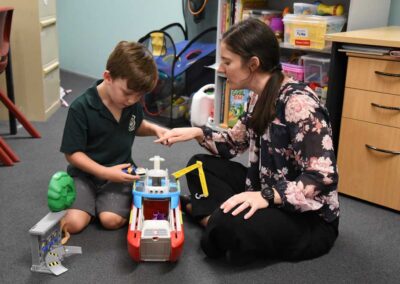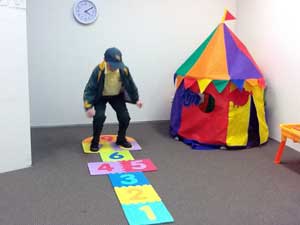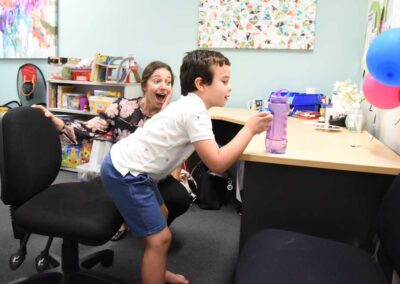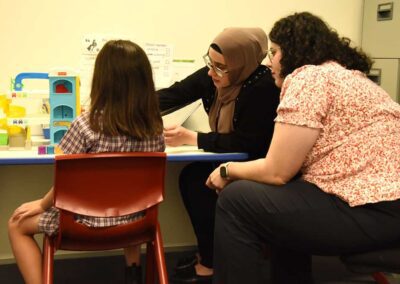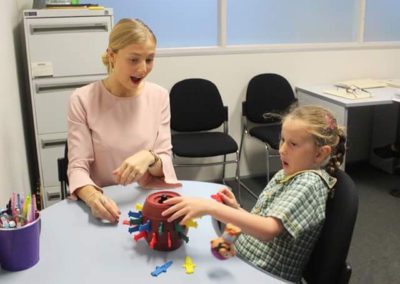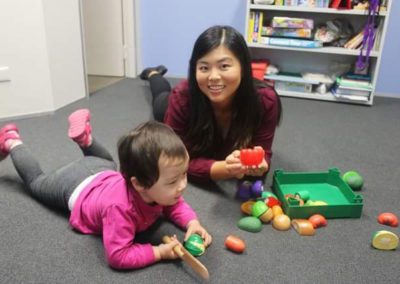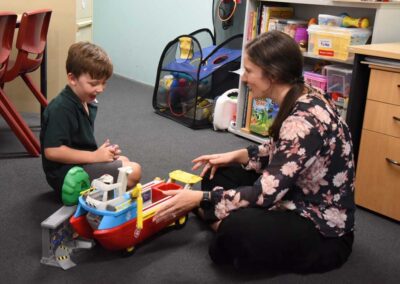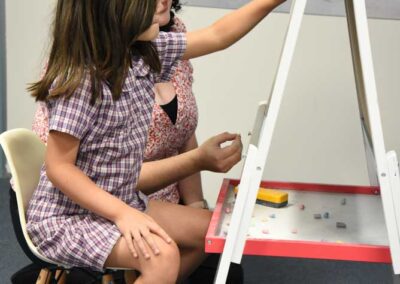As parents, it’s natural to closely monitor your child’s development, especially when it comes to milestones like speech and language skills. Every child is unique, and there is a wide range of normal development. However, if you find yourself wondering “When should my toddler start speech therapy?” this blog aims to provide guidance on recognising potential sings and understanding when intervention may be beneficial.

If you have noticed that your 2-3 year old is not reaching their milestones, this is an indicator that your toddler may benefit from seeing a Speech Pathologist. You should consider completing a speech pathology assessment if you notice:
1. My toddler is talking very little or not at all
- By the age of two your child should be able to say at least 50 words and put two words together (e.g. ‘bye daddy’, ‘no ball’).
- They can use their tone of voice to ask a question (e.g. ‘teddy go?’) and they start to use ‘mine’ and ‘my’.
- Talking very little or not at all can be an early sign of disorders like Autism Spectrum Disorder, severe speech sound disorder or a language disorder.
2. My toddler is very difficult to understand
- By age two, your toddler’s speech should be 50% intelligible by unfamiliar partners (e.g. like a waiter at a cafe, or extended family members etc.).
- By age three, most unfamiliar speakers should be able to understand your child well.

3. My toddler repeats words or phrases
- Many toddlers go through a period of being disfluent where they repeat words or phrases a number of times. This is normal and most children will outgrow this.
- You should see a speech pathologist if your child has been stuttering more than 6 months, if they are becoming frustrated or distressed when communicating, or if their disfluencies are limiting their everyday speaking activities.
4. My toddler is having trouble following directions
- By 2 years of age, toddlers can follow simple two-part instructions (e.g. ‘give me the call and the car’) and by age 3, they can follow more complex two-part instructions (e.g. give me the teddy and throw the ball).
- Toddlers can respond to simple wh-questions, such as ‘what’ and ‘where’ by the age of 2 years and ‘who’ by 3 years.
- They should be able to point to several body parts and to pictures in books when named.
- If you notice that your child has trouble understanding simple directions or simple wh-questions, it may be an indication of a receptive language difficulty.
Early Intervention is Key
The earlier speech or language delays are identified, the more effective interventions can be. Early intervention services are designed to address speech and language issues before they potentially impact a child’s academic and social development. Speech therapy for toddlers often involves play-based activities to make learning enjoyable and engaging.
 Parental Involvement
Parental Involvement
Parents play a crucial role in their child’s speech and language development. Creating a language-rich environment at home, engaging in conversations, reading together, and playing interactive games can positively impact a toddler’s language skills. The simple act of narrating what you’re doing while you complete tasks provides direct language modelling for your child (e.g. “We need to add some eggs to the mixture. Let’s look in the fridge for the eggs”). Collaborating with your speech therapist and following their recommendations further enhances the effectiveness of intervention.
Should I contact my doctor or speech pathologist first?
It is not necessary to acquire a referral from a doctor before visiting the clinic. However, if you suspect your child is having communication difficulties you may choose to discuss it with your doctor prior to booking in an assessment with a speech pathologist.
In conclusion, if you find yourself wondering when your toddler should start speech therapy, trust your instincts as a parent. While variations in development are normal, persistent concerns or multiple red flags are indications that you should seek an assessment. Remember, early intervention can make a significant difference in your child’s speech and language skills, setting them on a path for effective communication and social success.

